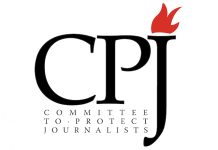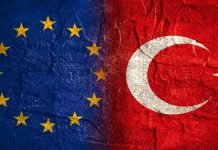Turkish authorities should immediately halt the deportation of Iranian investigative journalist Mohammad Mosaed, who has a well-founded fear of persecution if he were to be returned to Iran, the Committee to Protect Journalists (CPJ) said in a press statement on Monday.
According to the statement, Mosaed sent a message to the CPJ yesterday and said he had been detained by Turkish border police after crossing into Turkey from Iran through the eastern border province of Van.
He had been sentenced by an Iranian court to four years, nine months’ imprisonment in August on charges of “colluding against national security” and “spreading propaganda against the system.” He fled Iran two days before he was supposed to start serving his sentence.
“We believe that Mohammad Mosaed has a well-founded fear of persecution should he be returned to Iran,” said CPJ Middle East and North Africa Coordinator Sherif Mansour. “We urge Turkish authorities to respect their obligations under international law; to refrain from deporting Mosaed; to consider any request for political asylum that Mosaed may make; and to assure Mosaed’s rights are protected through due process of law.”
Mosaed was the winner of the CPJ’s 2020 International Press Freedom Award. He told the CPJ that Turkish police took him to Özalp State Hospital for a medical check and that they would soon hand him back over to Iranian border control.
The extradition of asylum seekers in Turkey has caused an outcry from human rights activists in the past. In 2019 Iranian nationals Saeed Tamjidi (27) and Mohammad Rajabi (25), who sought asylum in Turkey, were extradited to Iran by the Turkish government despite the knowledge that they could face the death penalty.
Under international human rights law, the principle of non-refoulement prohibits states from transferring or removing individuals from their jurisdiction or effective control when there are substantial grounds for believing the person would be at risk of irreparable harm upon return, including persecution, torture, ill-treatment or other serious human rights violations. The prohibition of refoulement is explicitly included in the Convention against Torture and Other Cruel, Inhuman or Degrading Treatment or Punishment (CAT) and the International Convention for the Protection of All Persons from Enforced Disappearance (ICPPED).
Last September Turkish President Recep Tayyip Erdoğan and Iranian President Hassan Rouhani held a virtual Turkey-Iran High-Level Cooperation Council meeting in which they agreed to take steps together in the region in the interest of both countries, including joint operations against militant groups such as the Kurdistan Workers’ Party (PKK) and its Iranian wing, PJAK.
Speaking to Voice of America, Aykan Erdemir, the director of the Turkey Program at the Foundation for Defense of Democracies and a former Turkish parliamentarian, had said, “As Turkish and Iranian leaders find greater common ground to join forces, there are also greater risks for Iranian nationals who have taken refuge in Turkey.”
Both the PKK and PJAK are designated as terrorist organizations by Turkey and the United States.















